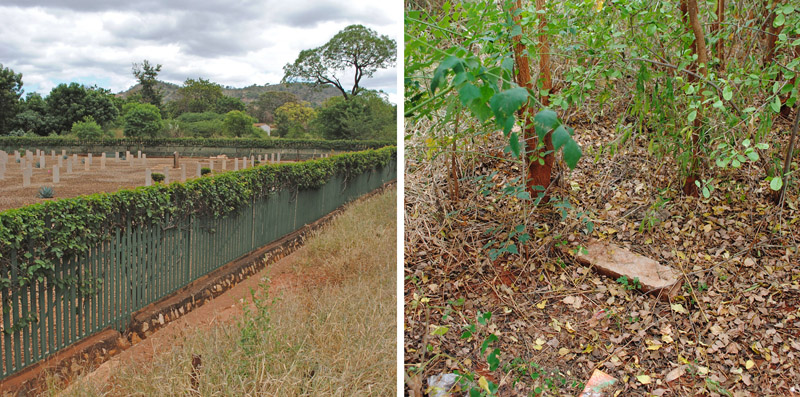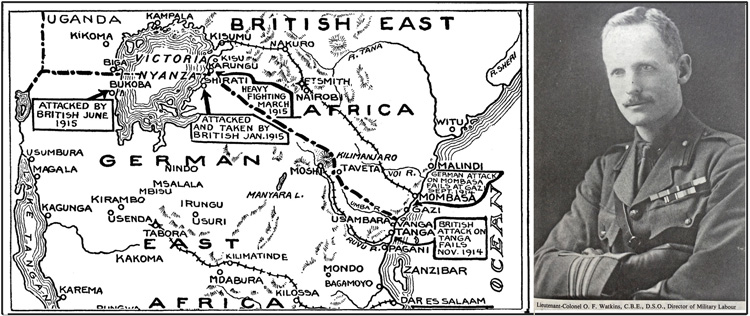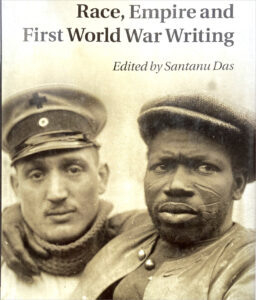War Graves project
During 2020-21 Michèle has been serving as a member of the Special Committee of the Commonwealth War Graves Commission to investigate whether WW1 casualties outside Europe had not been commemorated properly.
This investigation was triggered by a documentary film, shown on Channel 4 in November 2019. Produced by Uplands TV and presented by David Lammy, MP, this documentary brought to the TV screen the research that I had been doing for several years.
Her first published paper on this subject was in 2007, examining failures in commemoration of both Indian and African casualties, and it was followed by others in 2010, 2011, 2013, and 2017 (the details are in the bibliography here). Michèle’s briefing paper for the documentary, Sent Missing in Africa is posted below.
Here is the Channel 4 trailer for the documentary.
The policy of “equality of treatment” espoused by the IWGC (Imperial War Graves Commission, now the the CWGC, Commonwealth War Graves Commission) produced the beautiful memorials and cemeteries familiar from France and other European countries. In practice it was only those from white-settled countries who were given such treatment in their graves and memorials. Many thousands of Africans, Indians, and other colonials who died were deliberately forgotten and ‘sent “Missing”‘, a word originally applied to soldiers who were missing in action and whose bodies were never found.
In The Unremembered , Michèle showed David Lammy, MP, some of the primary documentary evidence she has collected showing systematic policy discriminating against treating colonial troops and supporters equally during and after WW1.
This evidence includes: official Meeting Minutes from the CWGC Archives; IWGC and Colonial Office correspondence including letters from Winston Churchill; papers from the National Archives such as the Pike Report detailing medical treatment of various military units in East Africa, including the native Military Labour Corps; the Watkins Report by Lt-Col Oscar Watkins describing the records kept by the MLC during WW1; and many others.
More information on records of the East Africa Carrier Corps
Michèle wrote a 32-page briefing for the film: 
Click to read or download “Sent Missing in Africa”
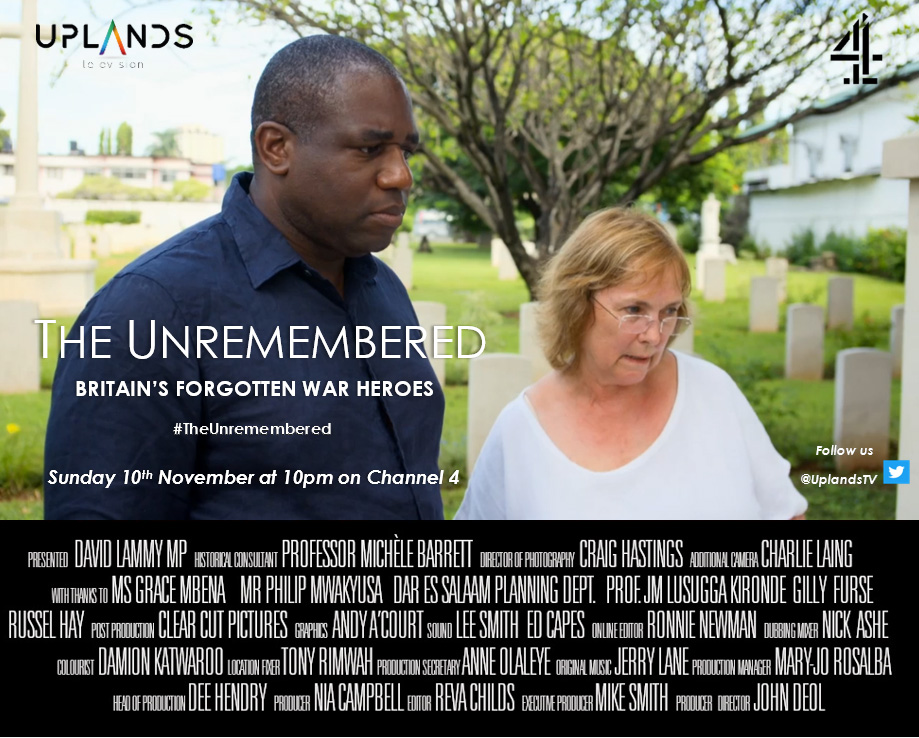
Poster for The Unremembered documentary
Previous publications on the politics of Commemoration
Subalterns at War
Barrett, Michèle (2007) ‘SUBALTERNS AT WAR’, Interventions, 9:3, 451 – 474
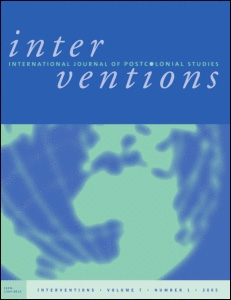 This paper considers the politics of naming in memorials of the First World War. That such memorials are highly political is shown in the case of the ‘Indian’ memorial at Neuve Chapelle: at the request of Pakistan, who wanted it to be retitled the Indo-Pakistan memorial, the War Graves Commission attempted to erase the word ‘India’ from the memorial’s register, documentation and signage. Comparing this memorial on the Western Front with its counterpart in Mesopotamia reveals that the listing of dead and missing servicemen’s names was a policy specific to Europe. Colonial rank-and-file soldiers, and labourers and porters, were normally not named on memorials elsewhere. In Africa, evidence from the archives of the War Graves Commission demonstrates a sharp differentiation between the treatment of ‘white graves’ and those of ‘natives’. These practices, some formally encoded in a policy ruling, rested on contemporary assumptions about stages of civilization and lives worth commemorating.
This paper considers the politics of naming in memorials of the First World War. That such memorials are highly political is shown in the case of the ‘Indian’ memorial at Neuve Chapelle: at the request of Pakistan, who wanted it to be retitled the Indo-Pakistan memorial, the War Graves Commission attempted to erase the word ‘India’ from the memorial’s register, documentation and signage. Comparing this memorial on the Western Front with its counterpart in Mesopotamia reveals that the listing of dead and missing servicemen’s names was a policy specific to Europe. Colonial rank-and-file soldiers, and labourers and porters, were normally not named on memorials elsewhere. In Africa, evidence from the archives of the War Graves Commission demonstrates a sharp differentiation between the treatment of ‘white graves’ and those of ‘natives’. These practices, some formally encoded in a policy ruling, rested on contemporary assumptions about stages of civilization and lives worth commemorating.
Barrett, Michèle (2017) Dehumanization and the War in East Africa
This paper considers the dehumanization of the African during and after the
First World War, focussing on East Africa. During the campaign dehumanization
was evident in attitudes towards African soldiers but was most starkly
seen in the treatment of the carriers. These attitudes informed the work of
the Imperial War Graves Commission, which largely excluded Africans from
individual commemoration in British cemeteries and memorials.
Barrett, Michèle (2011) Afterword in Race, Empire and First World War Writing, ed Shantanu Das
Entitled Afterword, Death and the Afterlife: Britain’s Colonies and Dominions, this paper examines cultural issues in commemoration of World War 1 and principles such as the individual name forming the basis for commemoration.
‘White Graves’ and Natives
The Imperial War Graves Commission in East and West Africa, 1918-1939
Article by Michèle Barrett in Bodies In Conflict, Routledge, 2014
 The Imperial War Graves Commission’s (IWGC) early decisions not to allow the repatriation of bodies to the United Kingdom, not to differentiate soldiers by military rank or social class, and not to allow cruciform headstones on graves, all generated enormous debate and highly emotional discussion… Nevertheless, it can now be seen that the Commission’s founding egalitarian resolve has resulted in cemeteries, on the Western Front and elsewhere, that are widely regarded by their many visitors as appropriate, eloquent and dignified. They have permanence, they have consistency and they have equal treatment in terms of rank and class. The Commission has, by contrast, made many distinctions on the basis of ‘race or creed’.
The Imperial War Graves Commission’s (IWGC) early decisions not to allow the repatriation of bodies to the United Kingdom, not to differentiate soldiers by military rank or social class, and not to allow cruciform headstones on graves, all generated enormous debate and highly emotional discussion… Nevertheless, it can now be seen that the Commission’s founding egalitarian resolve has resulted in cemeteries, on the Western Front and elsewhere, that are widely regarded by their many visitors as appropriate, eloquent and dignified. They have permanence, they have consistency and they have equal treatment in terms of rank and class. The Commission has, by contrast, made many distinctions on the basis of ‘race or creed’.
